Healthcare is a growing profession all over the world. Employment in the healthcare industry is expected to grow 15 percent by 2029. The profession in the modern day is not just limited to doctors, dentists, and nurses, as it also touches on information technology, information systems, and data analysis.
One popular and evolving healthcare field over the last few years is health informatics, which combines information technology, data analysis, and healthcare to manage and improve patient healthcare information.
This article will discuss the field of health informatics, and the courses and training you can pursue to advance in the field. We’ll also highlight other useful health informatics resources to help you along the way.
What Is Health Informatics?
Health informatics is the management of patient healthcare information. It combines information engineering and databases to gather, store, and interpret patient-related data.
The gathered data helps drive solutions and innovations that improve patient health. Health informatics is today a driving and critical field to healthcare reform.
What Is Health Informatics Used for?
Health informatics uses technology to facilitate communication and store patient data. It is used in hospitals, clinics, and other health facilities. Using the information from the data, patients can take charge of their healthcare and access personal data at any time.
- Maintaining electronic health records. Each patient’s health records are maintained and stored electronically.
- Collecting information for patient assessment. Gather data for assessment and interpretation of patient’s data.
- Use software like Patient Navigation. Use software to store, manage, and create patient reports.
- Develop clinical care guidelines. Each patient requires specific care and treatment. Ensure that care is met properly.
- Enhance electronic health records through information management. Manage electronic records utilizing information engineering and management.
Types of Health Informatics
Healthcare informatics has sub-fields that fall into applied research and clinical informatics across public health domains. Some of these are listed below.
Public Health Informatics
Public health informatics deals with various areas of public health, including disease prevention, preparation, and healthcare promotion. Generally, the field utilizes science in health informatics to research and practice healthcare.
Clinical Research Informatics
Clinical Research Informatics (CRI) applies, develops, and conducts clinical research to optimize patient data for useful interpretation and analysis of information. The field involves the management of information around clinical trials and clinical data.
Nursing Informatics
Nursing informatics deals with the integration of nursing science, computer science, and information technology to manage and communicate healthcare data into practice. It involves the communication and identification of information and knowledge that supports the nursing practice.
Consumer Health Informatics
Consumer health informatics deals with patient information to ensure health literacy, consumer knowledge, and education. The goal is to bridge the gap between patients and their health records, providing them the knowledge to make their own decisions.
Learning Healthcare Informatics
If you are interested in learning health informatics, you will see a diverse set of fields and subfields in the domain. To learn health informatics, you can sign up online or take in-person classes in the health informatics field.
How Long Does it Take to Learn Healthcare Informatics?
Undergraduate programs in healthcare informatics commonly take four years to complete, while graduate programs take up to two years. If you are planning to enroll in short courses, they may take somewhere around a few hours to months to complete.
How to Learn Healthcare Informatics: Step by Step
If you are interested in learning about health informatics, the best way to go about it is to research the field. You can get a degree and certifications to advance your career in the field.
Below is a list of a step-by-step process you can use to learn healthcare informatics.
- Enroll in a Bachelor’s Degree Program. With the rise of networks and technology usage in the healthcare system, a bachelor’s degree will give you all the necessary knowledge to develop processes and systems that rely on electronic health records. You will learn about health management and policies around health and how health care intersects with informatics to develop a structured health care system.
- Sign up for short courses. Although it is preferred to have a bachelor’s degree in the field, you can also enroll in short courses and training to gain understanding and knowledge of the field.
- Earn Relevant Licenses. To be a qualified health informatics professional, obtain certification and licenses so you can increase your knowledge and your chances of getting hired to work at a company.
- Apply for a Job. Utilize online job boards like LinkedIn, Indeed, Monster, and Jobvite to find jobs in the relevant fields.
The Best Health Informatics Courses and Training
Enrolling in courses and training is a great way to advance your career in any field. Below is a list of some of the best health informatics courses and training.
There are various universities in the United States that offer world-class health informatics programs. Let us look at some of the best courses in the field.
Best Online Health Informatics Courses
Due to COVID-19, most classes have moved online. Utilize this time to enroll in courses that are offered by some of the renowned universities in the US.
Health Information Literacy for Data Analytics Specialization
- Where: Coursera
- Time: 4 months
- Prerequisites: None
- Price: Enrol for free, price of course varies
Students will learn data sets, types of data, and methods for preparing data analysis. They will provide recommendations to improve patient’s data through analysis of the quality and validity of the data.
The Social and Technical Context of Health Informatics
- Where: Coursera
- Time: 9 hours
- Prerequisites: None
- Price: Enrol for free, price of course varies
This course is great for nurses and social workers looking to join the field of digital health and health information systems to further expand their skill sets. If you have a technical or engineering background and want to further your understanding of the healthcare industry, this course is perfect for you.
Introduction to Health Informatics
- Where: Coursera
- Time: Less than 3 months to a full year
- Prerequisites: None
- Price: $5,200
This is a great introductory course to learn about the health informatics field. Once you complete the course, you can join companies as a health informatics specialist, informatics lead, clinical informatics specialist, and application analyst.
Best Free Health Informatics Courses
Here are some free health informatics courses online that you can enroll in.
Health Informatics and Technology in Decision Making
- Where: edX
- Time: 3 weeks
- Prerequisites: Bachelor’s degree
- Price: FREE
This course will help you understand the concepts of the field of health informatics. You will also learn how the field is being used to create reforms in healthcare systems. You will use the information you learn to evaluate current healthcare practices and discuss emerging trends in the industry.
Health Informatics in the Cloud
- Where: Udacity
- Time: 5 weeks
- Prerequisites: None
- Price: FREE
In this course, you will learn about the US healthcare system and the role of the federal government in promoting informatics. You will also learn about the core technologies that drive healthcare informatics systems and tools.
Health Informatics in the cloud will provide real-world applications of health informatics. You will understand how electronic health records work and how you can use them for research purposes.
Big Data Analytics in Healthcare
- Where: Udacity
- Time: Not listed
- Prerequisites: Basic machine learning and data mining concepts. Programming skills: Python, Java, and Scala.
- Price: FREE
In this course, you will learn predictive modeling and graph analysis in big data. Included in the course are computational phenotyping, medical ontology, and patient similarity metrics in healthcare. You will also learn technologies such as MapReduce, Spark, and Hadoop.
Health Informatics Books
Whenever you are learning new skills, a great way to get an in-depth knowledge of those skills is through reading. Here are some of the best health informatics books that you can include in your library.

"Career Karma entered my life when I needed it most and quickly helped me match with a bootcamp. Two months after graduating, I found my dream job that aligned with my values and goals in life!"
Venus, Software Engineer at Rockbot
Health Informatics: A Patient-Centered Approach to Diabetes, Barbara M. Hayes and William Aspray
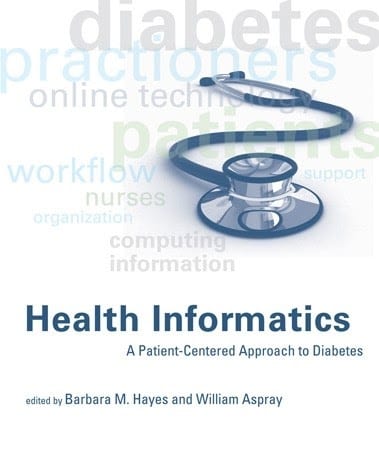
This book collection covers the technologies related to the information challenges for diabetes patients. These challenges include access, language complexity, quality, and privacy to their records.
Health informatics also includes challenges regarding other health conditions beyond diabetes. This book primarily focuses on the patient, including keeping charts of the information problems patients encounter in different stages of diabetes.
Health Care Information Systems, Karen A. Wager
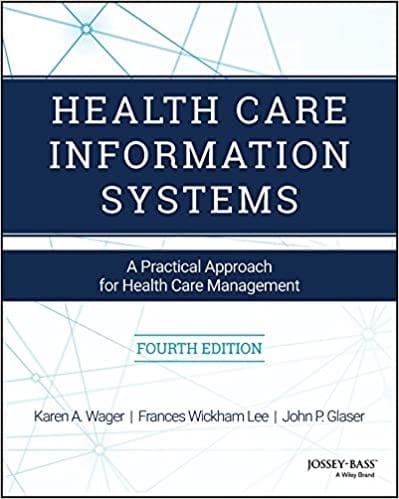
This book reviews the fundamental knowledge and tools required for managing information in healthcare organizations. It also offers guidance on the laws and regulations involved in healthcare. In addition, it teaches the methods and efficient procedures involved in the management of healthcare systems.
Health Informatics: An Interprofessional Approach, Ramona Nelson and Nancy Staggers

This book provides you all the information you need to be successful in the technology-driven healthcare practice. You will learn about various information systems such as electronic health records, clinical decision support, telehealth, ePatients, social media tools, as well as system implementation.
The book is written by expert informatics educators Ramona Nelson and Nancy Staggers who won a 2013 American Journal of Nursing Book of the Year award.
Best Online Health Informatics Resources
To advance your learning and knowledge of the health informatics field, there are many resources available that you can utilize, such as:
HealthIT.gov
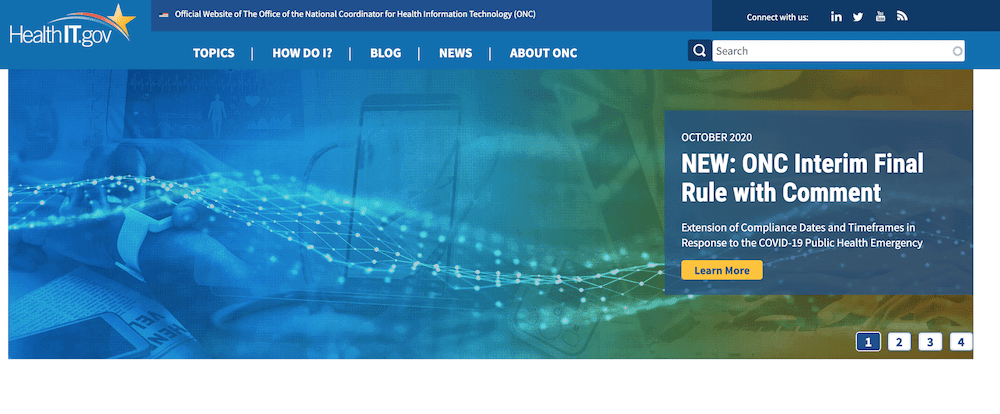
Provides resources on management and secure usage of electronic health records (EHRs).
The American Health Information Management Association (AHIMA)
Association of health information management (HIM) professionals worldwide provide resources related to the field.
Healthcare Information and Management Systems Society (HIMSS)

The site covers research and news related to the Healthcare IT field.
International Medical Informatics Association
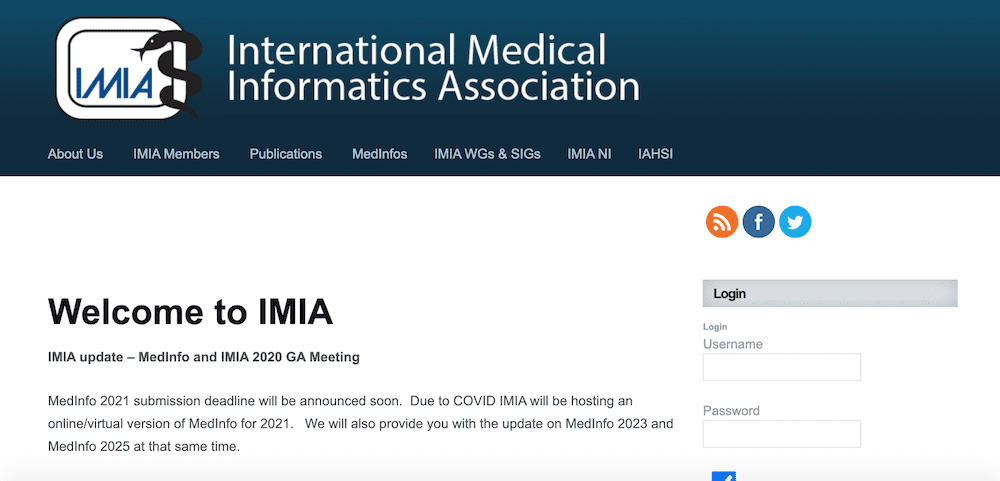
Provides information on health and biomedical informatics.
Health Informatics MOOCs and Free Online Courses
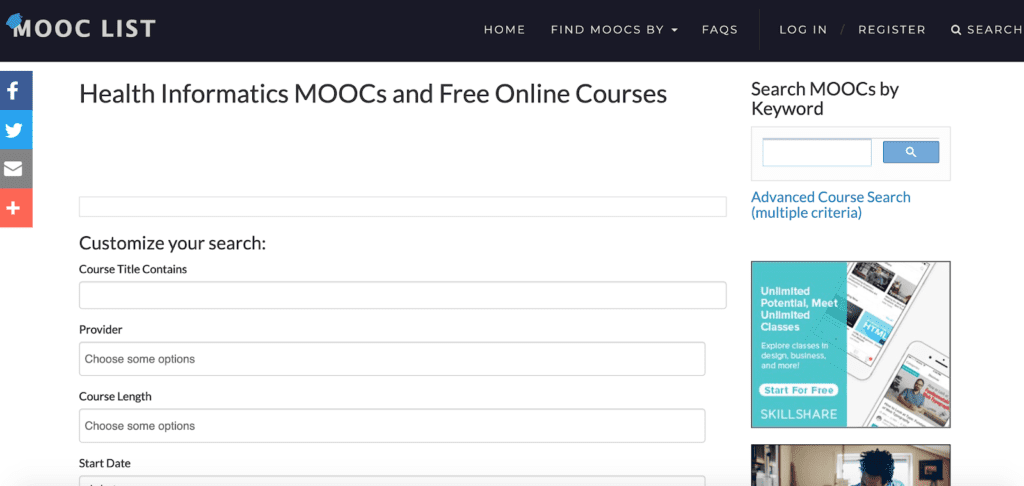
Search from a library of free online courses and plenty of other resources on the MOOCs list.
Health Informatics Certifications
Having health informatics certifications will increase your chances of getting hired. Certifications are a great way to demonstrate your knowledge and specialization in a certain field.
Certified Professional In Healthcare Information And Management Systems (CPHIMS)
This certification demonstrates your professional knowledge and competence in healthcare information and management systems. It also increases your credibility and chances of getting hired in a company. CPHIMS certification also shows your commitment to the health informatics field.
To be eligible for this you need to have a bachelor’s degree and five years of experience in information and management systems.
American Nurses Credentialing Center (ANCC)
ANCC provides nursing certification that demonstrates advanced practice in nursing. This certification will ensure your commitment to the nursing profession.
American Health Information Management Association (AHIMA)
AHIMA certification ensures you are qualified to provide high-level healthcare for the public. It also shows your commitment to impacting the future of this field.
To apply for AHIMA certification, you need to have a bachelor’s or master’s degree in the field.
Should You Study Healthcare Informatics?
Years ago, clinical care documentation was paper-based. With the rise of technology, patient health data can be securely shared electronically. In addition, digitization helps reduce wait times, minimize errors, and improve collaboration.
According to the US Bureau of Labor Statistics, employment in healthcare-related jobs will increase to 18 percent by 2026. This growth is due to the increased demand for efficiency in healthcare using electronic equipment and information systems to create patient records.
The field of healthcare is also rapidly progressing and has a lot of growth opportunities. A degree in healthcare informatics offers faster than average employment growth opportunities.
With the ever-growing need in the healthcare industry, and now a high expected demand in the informatics field, now is a great time to gain knowledge and skills in the healthcare informatics field.
About us: Career Karma is a platform designed to help job seekers find, research, and connect with job training programs to advance their careers. Learn about the CK publication.



